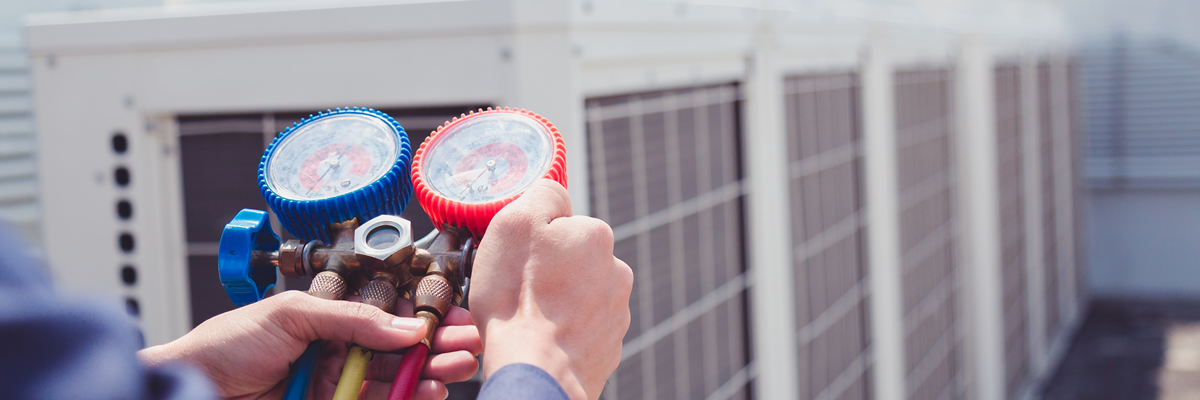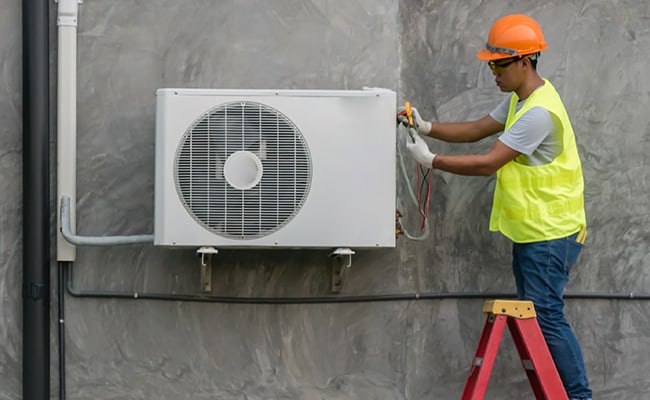Is a furnace replacement Worth It?
Picking In Between a Heatpump and Furnace: Key Factors To Consider for Your HVAC Needs
When evaluating home heating alternatives for cooling and heating requires, the decision in between a heatpump and a heater can be complicated. Each system provides distinct benefits tailored to specific environments and power effectiveness goals. Recognizing these distinctions is necessary for making an educated choice. Trick aspects such as setup prices and environmental effect even more make complex the choice process. Which choice truly lines up with one's convenience and sustainability choices? The adhering to areas will check out these considerations carefully.
Recognizing Warm Pumps: How They Function and Their Benefits
While several property owners take into consideration different home heating options, understanding exactly how heatpump function and their benefits can considerably influence their decision. Heat pumps operate by moving heat as opposed to generating it. In the winter months, they extract warmth from the outside air or ground and move it inside, while in the summer, they reverse this procedure, cooling the home by eliminating heat outside. This twin capability makes them versatile for year-round climate control.One of the main benefits of warm pumps is their power performance. They make use of considerably less power compared to standard furnace, potentially resulting in reduced energy bills (ductless mini splits). Furthermore, warm pumps have a smaller sized carbon impact, making them an eco-friendly selection. They additionally require less maintenance than traditional systems, adding to lasting price savings. Overall, understanding the auto mechanics and benefits of heatpump can assist home owners make informed choices regarding their heating and cooling demands
Checking Out Heaters: Kinds, Operation, and Advantages
Heaters are available in different kinds, including gas, electric, and oil versions, each with distinctive operational systems. Comprehending these distinctions is crucial, as they impact efficiency and home heating performance. In addition, heating systems supply numerous advantages, such as constant heat result and reliability in colder environments.
Types of Furnaces
Heating unit can vary significantly in layout and operation, with furnaces being a popular selection among homeowners. There are numerous sorts of furnaces, each making use of various gas sources and modern technologies. Gas furnaces prevail, leveraging all-natural gas to produce warm effectively. Electric heaters, on the various other hand, use electrical resistance to produce warmth, frequently preferred for their simple setup. Oil heaters, while less typical, work in areas with minimal gas access (ductless mini splits). In addition, condensing furnaces make the most of energy efficiency by reusing and capturing exhaust gases. Each type runs with a system of warmth exchangers and ductwork to distribute warm air throughout a home. Understanding the distinctions in between these heater kinds is crucial for informed HVAC decisions
Advantages of Heaters
For property owners looking for reliable warmth during cool months, the benefits of furnaces are significant. Heaters give consistent heating, making certain also temperatures throughout the home. They are specifically effective in extreme cold, often outshining warm pumps in frigid conditions. Various types, including gas, electrical, and oil furnaces, use adaptability to fulfill diverse demands and preferences.Furnaces also have a tendency to have lower first installment expenses compared to heat pumps, making them a much more obtainable alternative for several. Their robust style adds to a longer life expectancy, with several devices lasting over 15 years with correct upkeep. Additionally, contemporary furnaces are usually equipped with innovative modern technology for improved efficiency, which can lead to reduced power costs. In general, heaters stay a reliable choice for effective home heating.

Energy Performance: Comparing Warmth Pumps and Furnaces
When contrasting energy effectiveness between heatpump and heaters, the Seasonal Power Efficiency Ratio (SEER) plays a necessary role in establishing efficiency. Furthermore, a functional expense analysis reveals the long-term financial effects of each system. Recognizing these elements can lead homeowners in making informed decisions concerning their heating solutions.
Seasonal Energy Performance Proportion
Power performance plays an important function in the decision-making procedure in between heatpump and heaters, particularly when considering the Seasonal Energy Efficiency Ratio (SEER) This metric measures the cooling effectiveness of heatpump over a whole air conditioning season, providing a standardized way to review efficiency. Higher SEER ratings suggest better energy effectiveness, equating to lower power usage and lowered energy bills. On the other hand, heaters are generally evaluated utilizing the Yearly Fuel Use Efficiency (AFUE) rating, which reflects home heating effectiveness. When contrasting these 2 systems, home owners should prioritize SEER ratings for heatpump, as they straight effect general power savings and environmental sustainability. A detailed understanding of SEER can significantly influence the long-term complete satisfaction and cost-effectiveness of the chosen cooling and heating remedy.
Operational Cost Evaluation
Comprehending the operational costs connected with heatpump and heating systems is essential for house owners assessing their alternatives. Heatpump commonly use greater energy efficiency, transforming electrical energy into heat with very little waste. This causes reduced regular monthly utility expenses, specifically in moderate climates. On the other hand, typical heating systems, especially gas designs, might have lower ahead of time prices but can incur greater operational costs with time as a result of fuel rates and performance ratings.Moreover, warm pumps can function as both heating and cooling down systems, potentially lowering the need for different heating and cooling devices. While preliminary financial investments for heatpump may be higher, their lasting financial savings in power performance can make them a more economical option for numerous houses. Mindful evaluation of local energy rates is vital to determine the most effective alternative.
Installment Expenses: What to Expect for every Furnace
Installment prices for furnace can differ significantly between heatpump and furnaces, affecting property owners' decisions. Heat pumps generally have greater in advance setup costs, typically ranging from $3,500 to $8,000, depending on the device dimension and intricacy of setup. This includes the exterior device, interior handling system, and necessary ductwork modifications. Conversely, furnaces often tend to have lower first prices, averaging between $2,500 and $6,000, which can be appealing for budget-conscious property owners. Installment expenses can boost if substantial ductwork is required.Moreover, the choice of gas kind for heaters-- natural gas, propane, or electrical-- can likewise impact installation expenses. While heatpump offer power effectiveness, their preliminary investment might discourage some buyers. Eventually, reviewing setup costs alongside long-term financial savings and effectiveness will certainly help house owners in making educated decisions about their heating unit.
Environment Considerations: Which System Carries Out Better in Your Location
How do environment conditions affect the performance of heating unit? The efficiency of heat pumps and furnaces can vary significantly depending on the local climate. In modest environments, heat pumps stand out by effectively moving heat from the outdoors air, making them an energy-saving option. Their performance reduces in incredibly chilly temperature levels, where they might struggle to draw out adequate heat. Alternatively, furnaces, especially gas designs, give trustworthy and consistent warmth no matter exterior conditions, making them better in chillier regions.In locations that experience milder winters months, heatpump can operate efficiently year-round, giving both cooling and heating. On the other hand, areas with severe winters months usually take advantage of the toughness of heaters. Eventually, understanding the local environment is essential when determining between a warmth pump and a heating system, as it directly affects their operational performance and total efficiency.
Maintenance Demands: Long-Term Look After Warm Pumps vs. Furnaces
While both heat pumps and heaters require regular upkeep to guarantee peak efficiency, their details requirements and care regimens differ considerably. Heaters commonly need much less regular focus, with yearly examinations sufficing to examine for gas leakages, tidy filters, and assess overall capability. Their simpler layout usually permits simple repairs.In comparison, heatpump necessitate semiannual upkeep due to their dual duty in cooling and heating. This includes cleaning coils, inspecting refrigerant degrees, and making certain that both the interior and outdoor devices function at their finest. Additionally, heatpump upkeep usually involves even more complex components, making professional servicing essential.Neglecting maintenance can lead to diminished effectiveness and enhanced energy expenses for article source both systems. Ultimately, home owners must consider these long-lasting treatment needs when picking between a warm pump and a heater, as proactive upkeep can extend the lifespan and performance of either system significantly.
Ecological Impact: Choosing a Sustainable Home Heating Choice
The ecological influence of Look At This heating unit is an important analysis for home owners looking for lasting alternatives. Warmth pumps are generally a lot more energy-efficient than typical furnaces, as they transfer heat as opposed to create it, greatly reducing carbon emissions. By making use of renewable resource sources, such as geothermal or air-source heatpump, property owners can additionally lessen their eco-friendly footprint.On the various other hand, natural gas heaters discharge greenhouse gases and add to air pollution, though they typically supply greater warm output. Innovations in technology have actually led to the advancement of high-efficiency furnaces that minimize emissions.Ultimately, choosing a heating system entails weighing efficiency against ecological impact. Home owners are motivated to assess local power sources and motivations for sustainable systems, ensuring an option that straightens with both individual convenience and ecological responsibility. The choice affects not only instant convenience however likewise long-term sustainability and ecological health and wellness.
Regularly Asked Concerns
How Lengthy Do Heat Pumps and Furnaces Commonly Last?
The life expectancy of heatpump normally ranges from 15 to twenty years, while heaters can last in between 15 to three decades. Regular maintenance substantially impacts their long life and efficiency in offering home heating services.
Can I Utilize a Warmth Pump in Incredibly Cold Climates?
Heatpump can run in exceptionally cool climates, however their effectiveness lessens as temperatures decrease. In such problems, supplemental heating sources might be required to keep comfortable interior temperatures and assure peak performance.

What Is the Sound Level of Warm Pumps Versus Furnaces?
The sound degrees of heat pumps and furnaces vary significantly. Usually, heat pumps run more quietly than traditional furnaces, making them preferable for those sensitive to appear, while heating systems may create louder operational sounds during home heating cycles.
Are Heat Pumps Suitable for Both Heating & Cooling?
Warmth pumps are without a doubt ideal for both home heating and cooling (ductless mini splits). They work by transferring warmth, supplying reliable temperature level control year-round, making them a flexible selection for property owners looking for an all-in-one heating and cooling remedy
What Size Furnace Do I Need for My Home?
Identifying the proper dimension heater for a home needs reviewing variables such as square video, insulation quality, neighborhood climate, and the home's layout. Consulting an expert can assure an accurate analysis and excellent comfort. Warmth pumps commonly offer greater power performance, converting electrical power into warm with marginal waste. In moderate climates, warmth pumps succeed by efficiently transferring heat from the outdoors air, making them an energy-saving option. Alternatively, furnaces, particularly gas models, give dependable and consistent warm regardless of exterior problems, making them preferable in colder regions.In areas that experience milder wintertimes, warm pumps can run effectively year-round, supplying Web Site both home heating and air conditioning. Warm pumps are generally much more energy-efficient than conventional heating systems, as they transfer warm rather than produce it, considerably minimizing carbon exhausts. By making use of eco-friendly power resources, such as air-source or geothermal warmth pumps, home owners can better minimize their ecological footprint.On the various other hand, all-natural gas heating systems send out greenhouse gases and add to air contamination, though they typically supply greater warmth output.